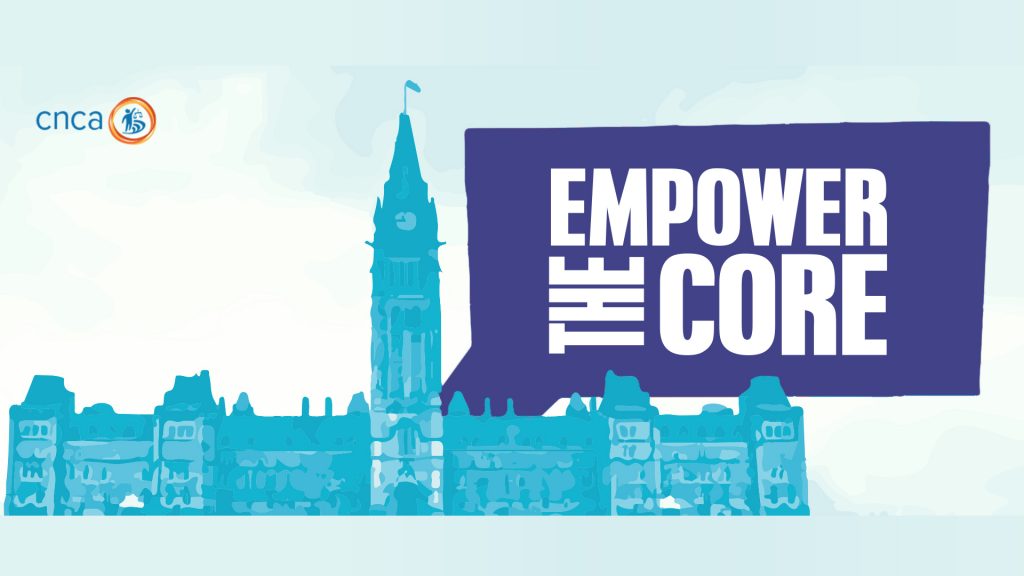This is the third submission from the Canadian Network on Corporate Accountability (CNCA) in response to requests for input on the various iterations throughout 2020 of the draft Standard Operating Procedures (SOPs) of the Canadian Ombudsperson for Responsible Enterprise (CORE).
Summary
Our central message remains the same: the CORE’s standard operating procedures, no matter how they are drafted, cannot make up for the fact that the CORE’s current lack of powers and inadequate mandate render the office unfit for purpose.
As we have reiterated on multiple occasions: “Unless and until the CORE is transformed into the promised independent office with robust powers to investigate, including the power to compel documents and testimony from companies under investigation, the CORE will not have the minimum powers required to be effective.”
Ongoing concerns
This latest iteration of the CORE’s SOPs raises new concerns, and leaves many questions unanswered. Despite incorporating some elements of our prior recommendations, the new draft SOPs will provide little confidence to impacted communities and workers, and the organizations and unions that accompany them, that legitimate human rights abuse allegations linked to Canadian business activity overseas will be fairly or effectively addressed by the CORE.
Final Submission
Read the full final submission here.
===
Text of the Submission, 9 October 2020
Summary feedback from the CNCA on the CORE’s September 2020 draft SOPs
This is the third submission from the Canadian Network on Corporate Accountability (CNCA) in response to requests for input on the various iterations throughout 2020 of the draft Standard Operating Procedures (SOPs) of the Canadian Ombudsperson for Responsible Enterprise (CORE).
Our central message remains the same: the CORE’s SOPs, no matter how they are drafted, cannot make up for the fact that the CORE’s current lack of powers and inadequate mandate render the office unfit for purpose.
As we have reiterated on multiple occasions: “Unless and until the CORE is transformed into the promised independent office with robust powers to investigate, including the power to compel documents and testimony from companies under investigation, the CORE will not have the minimum powers required to be effective.”[i]
This latest iteration of the CORE’s SOPs raises new concerns, and leaves many questions unanswered. Despite incorporating some elements of our prior recommendations, the new draft SOPs will provide little confidence to impacted communities and workers, and the organizations and unions that accompany them, that legitimate human rights abuse allegations linked to Canadian business activity overseas will be fairly or effectively addressed by the CORE.
One step forward: incorporation of some rights-based recommendations
We take note of the fact that some of our previous recommendations have been – at least in part – reflected in the revised SOPs.
For example:
- Language has been added on CORE’s role in representing the public interest in the protection of human rights and prevention of abuse;
- It has been clarified that (a) complainant(s) decision not to participate in mediation, including joint fact finding, will not bear on a determination of complainant(s) “acting in good faith”;
- It has also been clarified that CORE may retain authority to deal with some aspects of a complaint even if it elects to refer the complaint to another forum;
- Some language around retaliation has been added; however, the content of the provisions on retaliation are inadequate; and
- A few areas have been made more clear by changing language from “may” to “will.”
Two steps back: Outstanding and new concerns
Despite the above, several significant concerns remain.
1. Independent investigation is the central function that would ensure the effectiveness and credibility of the CORE; as such, it is alarming that it is ill-defined, and otherwise does not figure largely in the SOPs.
The CORE SOPs describe a “review” as being “like [sic] an investigation; it includes information-gathering and fact-finding.” Independent fact-finding is defined in the definitions section, and described briefly at ss. 12.8 and 12.9[ii].
“Independent fact-finding” is defined as “the process by which the Ombudsperson determines on their own the relevant facts and questions that will form the basis of a review.”
The origin of the CORE’s definition of independent fact-finding is unclear and the definition itself is problematic. Fact-finding includes determining the issues to examine, but not only. It also necessarily includes documenting alleged violations, establishing the facts and reporting on these findings to prevent future harm and ensure accountability.
For example, independent fact-finding missions (United Nations and Canada) articulate that independent fact-finding will:
- “Establish the facts and circumstances”
- “Collect and review relevant information”
- “Document alleged violations and abuses of international human rights law, including any gendered dimensions”
- “Preserve evidence with a view to hold those responsible accountable”
- “Report on the (IFF) mission to issue a comprehensive report on the situation of human rights, including on efforts to prevent and ensure accountability for violations and abuses of human rights and recommendations for follow-up”
- “Examine human rights allegations”[iii]
No further description of “review” is included in the SOPs. The lack of information about what civil society views as the key function of the CORE is highly discouraging. The definition of independent fact finding makes it more so.
In the end, the CORE SOPs go into considerable detail regarding what is expected of complainants and respondents, while providing very little about what complainants and respondents can expect of the CORE, including detail about the content and process of a review.
2. New framing of “complaint” and “complainant” risks delegitimizing credible allegations of human rights abuse
In this revision of the SOPs, the straightforward language of “filing a complaint” or being a “complainant” used in the previous version has been dropped. The September 2020 version of the SOPs has now come up with new language that narrows the definition of a complaint to those complaints that have surpassed the admissibility threshold.
The relevant definitions are as follows:
- “requester” is the individual, organization or community, or someone acting on their behalf who makes a request to file a complaint
- “complainant” is the individual, organization or community who made a request to file a complaint that the CORE decides is admissible, or the person who did so on behalf of an individual, organization or community
- “complaint” is an allegation of human rights abuse that the CORE has decided is admissible
Why would an allegation of human rights abuse submitted to the CORE not be considered a complaint, regardless of whether it goes through the admissibility threshold?
The new distinction between a “complainant” and someone who “makes a request to file a complaint” could result in the delegitimization of well-founded allegations of human rights abuse, thus further eroding civil society confidence in the CORE.
3. Definition of mediation unnecessarily restricts transparency
While parties to mediation may request confidentiality of all or parts of the process, not every mediation process must or should be kept entirely confidential. The CORE’s SOPs preclude this by defining mediation as: “an informal, voluntary and confidential process in which an impartial third party assists participants in resolving a dispute”.
4. Addition of undefined technical advisory committee, raises questions
The addition of a technical advisory committee is unexpected. The membership and mandate of the technical advisory committee is very unclear:
“The membership and mandate of the advisory committee will be public, and the mandate will include providing specialized information and technical advice to the CORE relating to the exercise of the CORE’s mandate.”
This raises several significant questions and concerns. Who will sit on the advisory committee? How will conflict of interest be addressed? Will the advisory committee be privy to confidential information? Will the advisory committee be included in decisions on admissibility of complaints, the making of recommendations, and/or the making of findings of fact?
5. Omission in detail on whose views informed the consultation?
In the introduction at section 3.1 you indicate that:
“The CORE developed these Operating Procedures (“the Procedures”) independently with input from stakeholders, practitioners, organizations that represent the interests of impacted individuals and communities, and other experts.”
It is our understanding that CORE has received input from industry associations and individual companies in the elaboration of these Operating Procedures. This should be listed at 3.1.
Many civil society questions and concerns go unanswered, further undermining confidence in the process
This is the third submission from the Canadian Network on Corporate Accountability (CNCA) on various iterations of the Canadian Ombudsperson for Responsible Enterprise’s (CORE) draft Standard Operating Procedures (SOPs). To date, we have not received 1) any detailed response on how our feedback has been incorporated, 2) direct answers to any of the questions we have raised, nor 3) any explanation when our feedback has been ignored.
CNCA has also provided extensive feedback on the CORE’s draft Guidance to Complainants. CNCA has had no detailed response to how and whether our feedback will be acted upon, nor have we seen a revised version of the Guidance.
For example, following are the unanswered questions and recommendations in our response to the March 2020 version of the CORE SOPs:
- A blanket discretion to refuse to review meritorious complaints is neither necessary nor justifiable.
- One omission in the CORE’s current draft standard operating procedures relates to the CORE’s ability to make a broad range of recommendations to the Government of Canada.
- Another omission is detail relating to CORE-initiated reviews. The CORE should develop protocols for CORE-initiated reviews, in particular those involving in-country and project or factory site visits.
- How will CORE strive to balance power as it commits to do in the section on dispute resolution? On this issue, see our feedback to the guidance for complainants.
- What is meant by a “flexible approach” in moving between dispute resolution and a review process? Specifically, it must be made clear that FPIC will be secured from vulnerable communities and other complainants to move their complaint from a review process to a dispute resolution process.
- To what extent can confidentiality and anonymity be guaranteed? What measures and protocols will the CORE and its staff implement to enhance these guarantees for vulnerable community complainants?
- What consequences are envisioned for those companies who are found to engage in retaliation or reprisals but who do not receive Export Development Canada (EDC) or trade commissioner service support or financing? The CORE should also examine its language around future EDC financial support. The language currently appears to exaggerate the consequence of a CORE recommendation, since without changes to the Export Development Act, there is no guarantee a CORE recommendation will be followed.
- Why will the CORE notify companies of a complaint that the CORE decides to reject and does not review? Why will the CORE notify companies before starting its initial assessment?
- Why will the CORE not directly monitor implementation of the terms of the settlement and instead only possibly assist in monitoring the implementation?
- Why are remedies limited to those specifically mentioned in the United Nations Guiding Principles on Business and Human Rights? This is an area in which the CORE should retain discretion, permitting it to recommend a remedy tailored to the needs of the situation.
- Why will the CORE always share information with the host country National Contact Point (NCP) and the Canadian NCP? This question is relevant given the lack of civil society confidence in the Canadian NCP, its failure to result in remedy for complainants, and its lack of independence from government (here in Canada and in many parts of the world). In fact, the inadequacies of the NCP in addressing corporate malfeasance are a large part of what ultimately led to the CORE being created. The CORE should minimize integration with the NCP, share only limited information, subject to the informed consent of the complainant(s), and ensure that complainants’ confidentiality and anonymity are guaranteed.
We have on several occasions noted with alarm that CORE’s belief that “… human rights are best realized through collaborative approaches…” is not a recognized international human rights approach.[iv] We have recommended it be removed from the CORE’s materials. The latest revision to the draft SOPs deleted the assertion, but it remains prominently on the CORE’s website in the “Our Approach” section: “The Office of the Canadian Ombudsperson for Responsible Enterprise (CORE) believes human rights are best realized through collaborative approaches such as information sharing, mediation, and joint fact-finding.”
Recommendations relating to consultations with civil society
As mentioned above, this is the third time that the CNCA has been formally asked to provide comment on the CORE’s draft SOPs. We have also provided input to the CORE’s Guidance to Complainants, and have been invited to make submissions to the CORE’s procedures on retaliation. To date, we have simply received a new PDF document that does not include any reference to what has been changed from the previous version we reviewed.
We offer the following:
- It would be very appreciated if the CORE could respond to the feedback that is provided by civil society prior to soliciting new feedback on revised versions. This could be done through a written response that explains what recommendations were incorporated and how, and why other recommendations were dismissed; this could be done through the publication of a “what we heard” document that outlines the feedback CORE has received from various sources; and / or it could be done by providing a track changes document that shows how the new document differs from what was previously reviewed.
- CORE should seek to coordinate with other government agencies on the timing of consultations with civil society relating to business and human rights issues. In the fall of 2020, there have been consultations on the CORE’s SOPs, the CORE’s retaliation policies, Canada’s Responsible Business Conduct Strategy, the National Contact Point and Export Development Canada. The deadlines for response to the CORE SOPs, Retaliation Policy and RBC strategy renewal fall within a week of each other. The time provided for feedback has been between 2 and 4 weeks. Had all of these consultations not coincided, this timing might have been adequate. As they did all coincide, it was impossible for CNCA to produce a comprehensive response that adequately reflects the input of our members and global partners, or that completely outlines our views on the policies, procedures and guidelines under review.
Canadian civil society operates with extremely limited resources. We thank you in advance for taking this into account in the future and making participation in consultation processes more accessible, meaningful and transparent.
ENDNOTES
[i] See, for example, the July 2020 letter from the CNCA here: http://cnca-rcrce.ca/wp-content/uploads/2020/07/CNCA-letter-to-CORE-re-spring-2020-consultations.pdf
[ii] 12.8 If joint fact-finding is not possible or is limited, the Ombudsperson may use independent fact-finding. Independent fact-finding may include interviewing the parties, witnesses proposed by the parties and others, and inviting submissions from the parties.
12.9 The Ombudsperson may seek assistance with independent fact-finding including from experts and host country governments, carry out different types of research, conduct interviews, undertake country visits, and ask for submissions from industry associations, civil society organizations, and other interested persons.
[iii] See for example the mandate of the United Nations Human Rights Council’s Independent Fact-Finding Mission to Libya at https://www.ohchr.org/EN/HRBodies/HRC/FFM_Libya/Pages/Index.aspx and the description of the Harkat Mission to Sudan (re Talisman) at https://www.hrw.org/reports/2003/sudan1103/23.htm.
[iv] See, for example, the February 2020 letter from Alex Neve, Catherine Coumans and Emily Dwyer at http://cnca-rcrce.ca/wp-content/uploads/2020/05/Letter-to-CORE-Neve.-Dwyer.-Coumans-13.02.2020.pdf
NOTE
This post was originally titled “CNCA’s 3rd submission to CORE consultations” on 20 November 2020.




